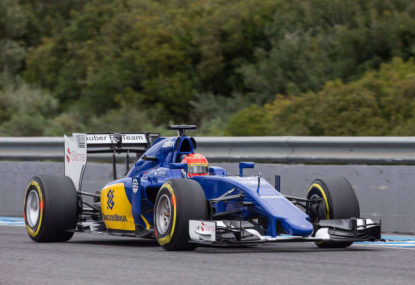The IndyCar Afterburn: The pitfalls and pinnacles of Long Beach 2024
The Long Beach Grand Prix is the Monaco of American motorsport, and this past weekend, the IndyCar Series reminded everyone exactly why. We witnessed…

Just as the middle of the Formula One season is often characterised by talk of driver swaps and signings, so too do rumours of team viability begin to surface.
‘Will X make it to the end of the season? Can Y pay back its investors? What is Quantum Motorsport, anyway? Why is a watch sponsoring an engine?’ All fascinating questions to occupy minds during the European summer adjournment.
But in 2016 the story is far more positive, because after six months (and more) of speculation that Sauber, one of Formula One’s iconic independent teams, was teetering on the brink of collapse, news of its salvation has arrived ahead of the Hungarian Grand Prix.
“The Sauber Group is pleased to announce the change of its ownership,” Sauber’s press release triumphantly proclaimed.
“Following the signing of the acquisition agreement with the current shareholders, Longbow Finance SA will fully acquire Sauber Holding AG, which is the ultimate holding company of the Sauber Group.”
The name ‘Longbow Finance’ isn’t one that fills the heart with confidence — presumably it beat ‘Fingerscrossed Investment’ and ‘Whatstheworstthatcouldhappen Lending’ to the punch — but the stated intention of the company is to stabilise the team by exploiting its capacity to do business outside F1 using its technical expertise.
It’s a similar model employed to great effect by Williams, which is a diversified engineering and technology business rather than a simple Formula One team. It suggests this is more than a mere vanity purchase, as is always the risk in Formula One.
Moreover, Longbow has bought the team in its entirety, which means Peter Sauber, the squad’s eponymous founder, is out.
“I am very happy that my courageous investment to buy the team back, which I made six years ago, with the intention to secure the base in Hinwil and the place in Formula One has proved to be correct,” he said, referring to his final-hour saving of the team when then major shareholder BMW withdrew from the sport at the end of 2009.
By this point you’re perhaps wondering why 300 precious words in The Roar’s motorsport section have been spent to describe the team currently last in the constructors standings with exactly zero points to its name.
The answer is simple: Sauber is absolutely critical to the health of Formula One.
Formula One might earn its glitz and glamour through the involvement of the big manufacturers — Nico Rosberg determinedly growling, “I’ll find you” in Mercedes commercials is all well and good — and its dotting of the globe with racing circuits lends it a worldly air, but the independent teams are the lifeblood of the sport.
Sauber, Williams, Force India, Manor — Haas too, once it has had time to establish itself— are the core of Formula One. While the most cost effective way to compete, as Sauber will now attempt to do, is be more than a Formula One team, motorsport remains at the core of what makes these squads tick.
Before Mercedes rocked up, while Renault toyed with the idea of leaving the sport altogether, and at the conclusion of the manufacturer era triggered by the global financial crisis, these teams in one guise or another have stood fast and committed unconditionally to the sport.
Sauber epitomises the independent ethos. Its factory is outside Zurich, nowhere near any other team and outside the European Economic Area, making the task of competing for personnel and resources far more difficult than for its rivals, all of which are based in the European Union and most of which within close proximity of each other in England.
From its humble 1970s hill climb origins through to present day, the team that Peter Sauber built has persisted against the tide, and it has done so always with great dignity. Few, if any, in the Formula One world of politics and egos would have a bad word to say about the Swiss squad — Sauber is motorsport, with emphasis on the sport.
The Sauber F1 team makes a crucial contribution to the sport. Its potential collapse — perhaps inevitable at the end of the season were a buyer not found — would have undermined the fabric of the sport. Perhaps worse, it would have been an indictment on an entity the size of F1 for being unable to support a team so devoted to the competition. Such a scenario should be unacceptable to the sport as a whole.
Sauber is at the heart of Formula One, and Longbow Finance’s investment keeps the sport’s pulse ticking for a little longer.